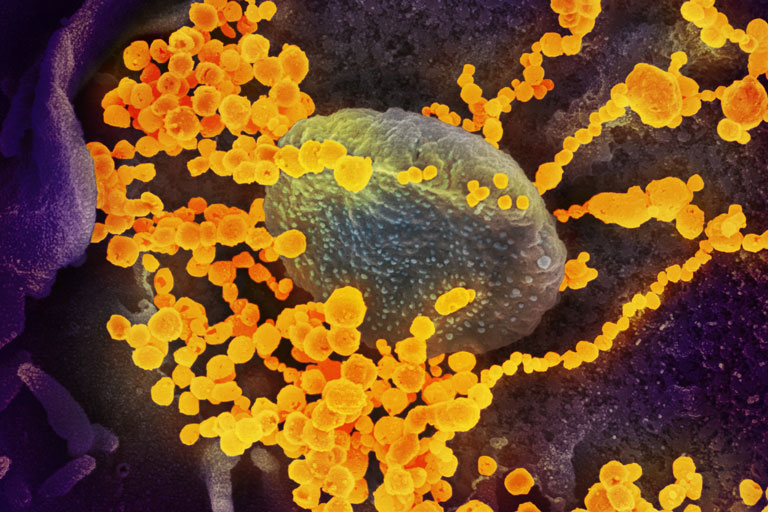IU-based science gateway enables key COVID-19 research using big data
May 15, 2020
The Collaborative Archive and Data Research Environment was established to make an impact on big data research. In 2020, it’s now making an impact on the COVID-19 fight through a new fellowship program to facilitate COVID-19 research.
Led by IU Libraries in collaboration with the IU Network Science Institute (IUNI) and the Big Ten Alliance, CADRE offers access to huge datasets such as those from Web of Science and the U.S. Patent and Trademark Office as well as support and resources to take full advantage of working with such massive datasets.
As COVID-19 began its spread through the United States, CADRE answered a call to action from the White House Office of Science and Technology Policy. The call challenged researchers to help scientists answer high-priority questions using the COVID-19 Open Research Dataset, a resource encompassing tens of thousands of scholarly articles about COVID-19, SARS-CoV-2, and related coronaviruses.
CADRE's response was to create the Research Cohort for the Study of Coronaviruses fellowship program to give any researcher studying the pandemic an opportunity to take advantage of CADRE’s expertise and services.
"The CADRE project is in a position to be able to help the scientific community, and we wanted to ensure that those resources were made available," said Jamie Wittenberg, former CADRE project director. "Our fellows will receive a 'special tier' of service including dataset access, hands-on support from our technical team and research scientists, and an opportunity to present their work to others."
The CADRE group quickly granted fellowships to four research teams:
- Filipi Nascimento Silva, a research scientist at IUNI, and Diego Raphael Amancio, associate professor of computer science at University of São Paulo, will help researchers keep up with the rapidly growing number of COVID-19 studies being released. They will use automated methods to summarize and provide overviews of COVID-19 studies that will allow researchers to assess the relevance of new work to their own research.
- Sadamori Kojaku, a postdoctoral fellow at the Luddy School of Informatics, Computing, and Engineering at IU Bloomington, is working with others to create a research map of papers about COVID-19 and compare that map with similar maps for other diseases such as SARS and influenza. The comparison will reveal unexplored COVID-19 research areas and concentrations of research activities, and the map will keep incorporating new papers to keep track of expanding research.
- A third research team will study the dynamics of collaboration and team formation among COVID-19 research groups. Caroline Wagner and Xiaojing Cai of Ohio State University, Caroline Fry of University of Hawaii at Manoa, and Yi Zhang of University of Technology Sydney, Australia, will be looking for key patterns in communication and collaboration among the many international research collaborations that have emerged during the pandemic.
- Yulia Sevryugina, University of Michigan, is evaluating the research quality of COVID-19 work. At a time when coronavirus research is being disseminated so rapidly, some studies may lack of scientific rigor and be more likely to have errors. Sevryugina will use CADRE’s datasets to identify signs of lower quality such as incoherent writing, stylistic errors, plagiarism, speculative language, unreproducible experiments, and far-fetched conclusions based on poor quality data.


